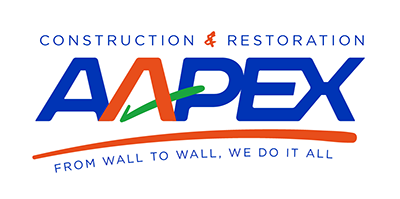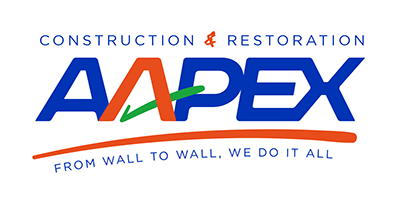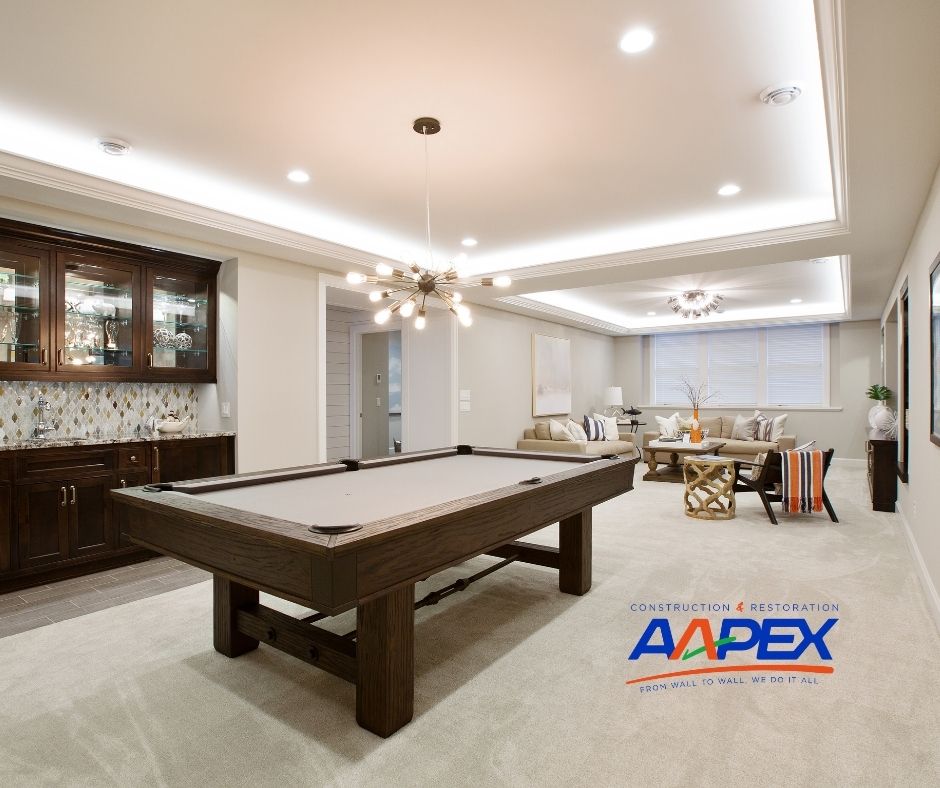When you envision your freshly remodeled basement, are you dreaming of an in-home theatre or sports den where you can retreat from the chaos of life and just relax? Maybe what you picture is smooth leather couches, a fully stocked wet bar, and a mahogany pool table. No matter what the finished vision for your man cave looks like, there are some “must have” that every remodeled basement will need. Read on to learn about key features you’ll want to be sure to include in your basement remodeling designs.
Simple Plumbing in Your Remodeled Basement
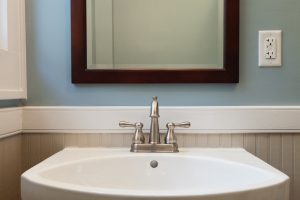 A remodeled basement is typically designed around the concept of adding living space to the home. This space will become an area where you spend a fair amount of time. Installing even a half bath to cut down on having to run upstairs every time nature calls will help make that space more livable. While not every remodeled basement will feature a well-stocked wet bar, fully functioning BBQ kitchen, or even a bathroom, once a basement is finished, it is much more labor intensive to go back in and add simple plumbing access. If you’re not planning on incorporating plumbing fixtures into your finished basement, be sure to make a plan for tapping into water lines and creating easy access panels before the walls and flooring are installed.
A remodeled basement is typically designed around the concept of adding living space to the home. This space will become an area where you spend a fair amount of time. Installing even a half bath to cut down on having to run upstairs every time nature calls will help make that space more livable. While not every remodeled basement will feature a well-stocked wet bar, fully functioning BBQ kitchen, or even a bathroom, once a basement is finished, it is much more labor intensive to go back in and add simple plumbing access. If you’re not planning on incorporating plumbing fixtures into your finished basement, be sure to make a plan for tapping into water lines and creating easy access panels before the walls and flooring are installed.
Basement Water Management System
 While we’re on the topic of water, it’s worth reminding you that remodeled basements are, by design, below-grade. This means you need to take steps to prevent damage to your finished area caused by water intrusion. If your basement has any history of water intrusion, be sure to address the issue prior to beginning the remodeling process. Even if your basement has a dry history, installing a perimeter drain and sump pump will protect your basement – and remodeled living space – during heavy rains. To keep moisture from accumulating in the air, every remodeled basement should also feature a dehumidifier for keeping moisture levels below 55%. This not only keeps the basement from becoming stuffy when you have guests over, but it also helps to keep moisture levels low enough to prevent mold growth.
While we’re on the topic of water, it’s worth reminding you that remodeled basements are, by design, below-grade. This means you need to take steps to prevent damage to your finished area caused by water intrusion. If your basement has any history of water intrusion, be sure to address the issue prior to beginning the remodeling process. Even if your basement has a dry history, installing a perimeter drain and sump pump will protect your basement – and remodeled living space – during heavy rains. To keep moisture from accumulating in the air, every remodeled basement should also feature a dehumidifier for keeping moisture levels below 55%. This not only keeps the basement from becoming stuffy when you have guests over, but it also helps to keep moisture levels low enough to prevent mold growth.
Exterior Wall Insulation
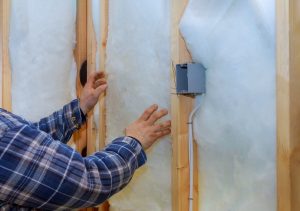 Having a remodeled living space below-grade has its benefits, one of which is a pretty steady temperature from day to day. In the summer, you’ll enjoy a man cave that is maybe 10-15 degrees cooler than the living space above it. However, the same holds true in the winter, when basement temperatures can dip into the low 60s or even high 50s. While you can warm the space by opening furnace vents or using a portable heater, adding insulation to the exterior walls before the drywall is installed will help regulate these temperatures throughout the year.
Having a remodeled living space below-grade has its benefits, one of which is a pretty steady temperature from day to day. In the summer, you’ll enjoy a man cave that is maybe 10-15 degrees cooler than the living space above it. However, the same holds true in the winter, when basement temperatures can dip into the low 60s or even high 50s. While you can warm the space by opening furnace vents or using a portable heater, adding insulation to the exterior walls before the drywall is installed will help regulate these temperatures throughout the year.
Moisture-Resistant Walls & Flooring for Your Remodeled Basement
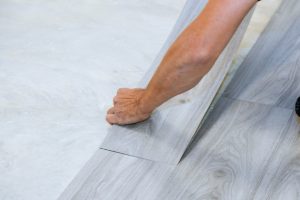 Many of the “musts” for remodeled basements involve controlling moisture levels and water intrusion because basements are below-grade, where water tends to migrate. Getting ahead of these potential moisture issues to ensure your remodeled basement stays dry is the first step. Installing moisture-resistant walls and flooring is the next step to preventing any moisture problems from developing in your finished space. There are many stunning options for moisture-resistant walling, including moisture- and mildew-resistant drywall. The same considerations need to be made when selecting the flooring for your remodeled basement. Options abound when it comes to moisture-resistant flooring materials, but some popular choices include engineered wood, vinyl tile or plank flooring, ceramic tile, and even moisture-resistant carpeting.
Many of the “musts” for remodeled basements involve controlling moisture levels and water intrusion because basements are below-grade, where water tends to migrate. Getting ahead of these potential moisture issues to ensure your remodeled basement stays dry is the first step. Installing moisture-resistant walls and flooring is the next step to preventing any moisture problems from developing in your finished space. There are many stunning options for moisture-resistant walling, including moisture- and mildew-resistant drywall. The same considerations need to be made when selecting the flooring for your remodeled basement. Options abound when it comes to moisture-resistant flooring materials, but some popular choices include engineered wood, vinyl tile or plank flooring, ceramic tile, and even moisture-resistant carpeting.
Soundproofing Your Remodeled Basement
 No matter how you intend to use your remodeled basement, keeping sound in and out of your finished space should be an important part of its design. With concrete floors and walls as their foundation, remodeled basements tend to send sounds echoing through the house, even after walls and flooring have been installed. That means any noises coming from your home theater will echo throughout the house if you don’t take steps to dampen the sound. Similarly, sounds from around the house, whether from other people or from the laundry and HVAC system, will intrude your quiet, remodeled basement. This can be particularly aggravating for homeowners converting their basement into a home office. Be sure to talk to your remodeling contractor about which methods for sound proofing your remodeled basement are best suited for your space.
No matter how you intend to use your remodeled basement, keeping sound in and out of your finished space should be an important part of its design. With concrete floors and walls as their foundation, remodeled basements tend to send sounds echoing through the house, even after walls and flooring have been installed. That means any noises coming from your home theater will echo throughout the house if you don’t take steps to dampen the sound. Similarly, sounds from around the house, whether from other people or from the laundry and HVAC system, will intrude your quiet, remodeled basement. This can be particularly aggravating for homeowners converting their basement into a home office. Be sure to talk to your remodeling contractor about which methods for sound proofing your remodeled basement are best suited for your space.
Are you dreaming of a remodeled basement? Aapex Construction & Restoration has more than 20 years of experience with a team that is exceptional in both workmanship and customer service. We specialize in restoration and construction projects for both residential and commercial properties. Contact us today for a consultation to begin turning your dreams into a reality!
Related Articles
Water in Your Basement: Sources and Solutions
Landscaping Tips to Prevent Basement Flooding
Minding the Mess: Preparing for a Home Renovation
